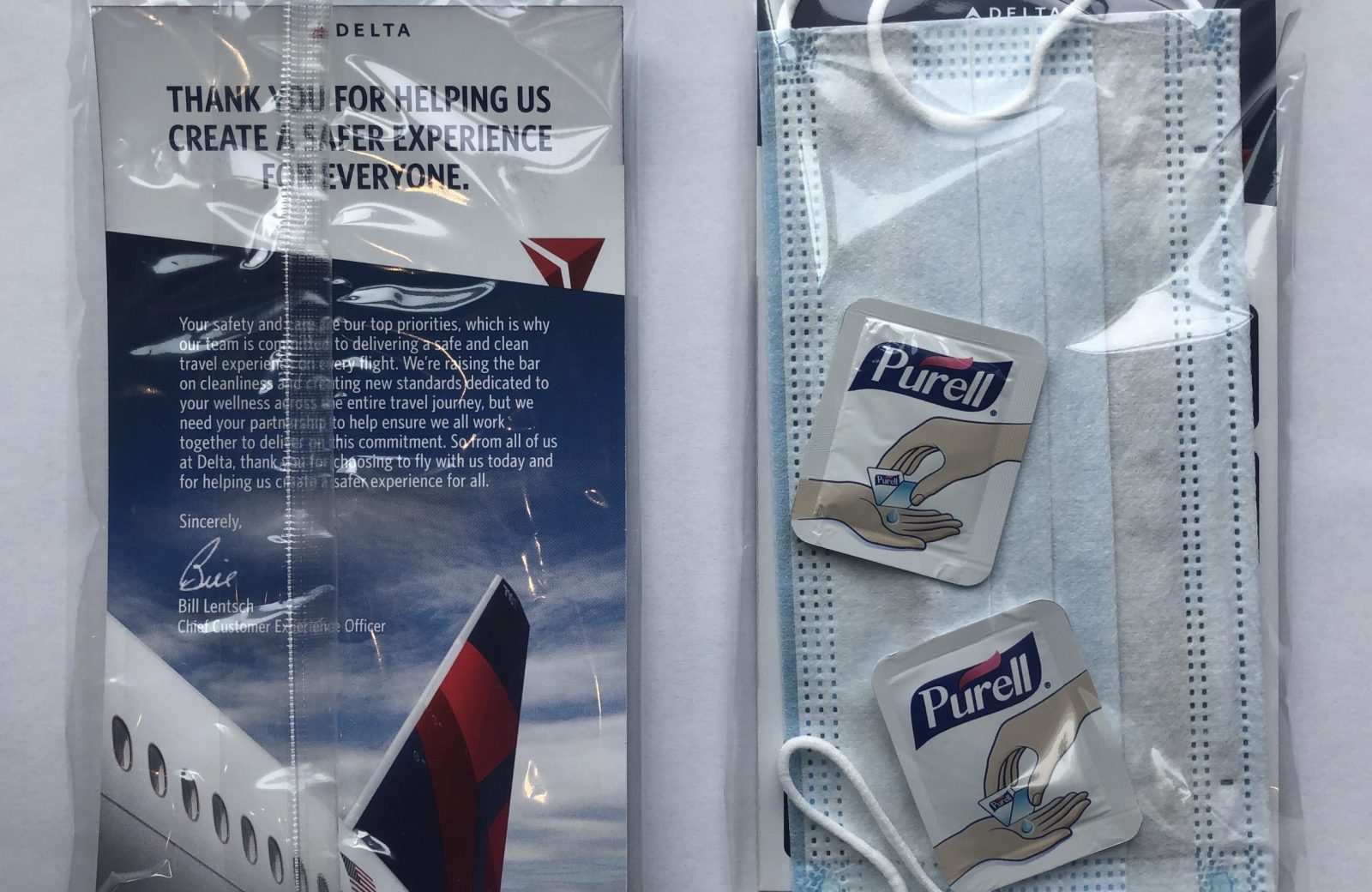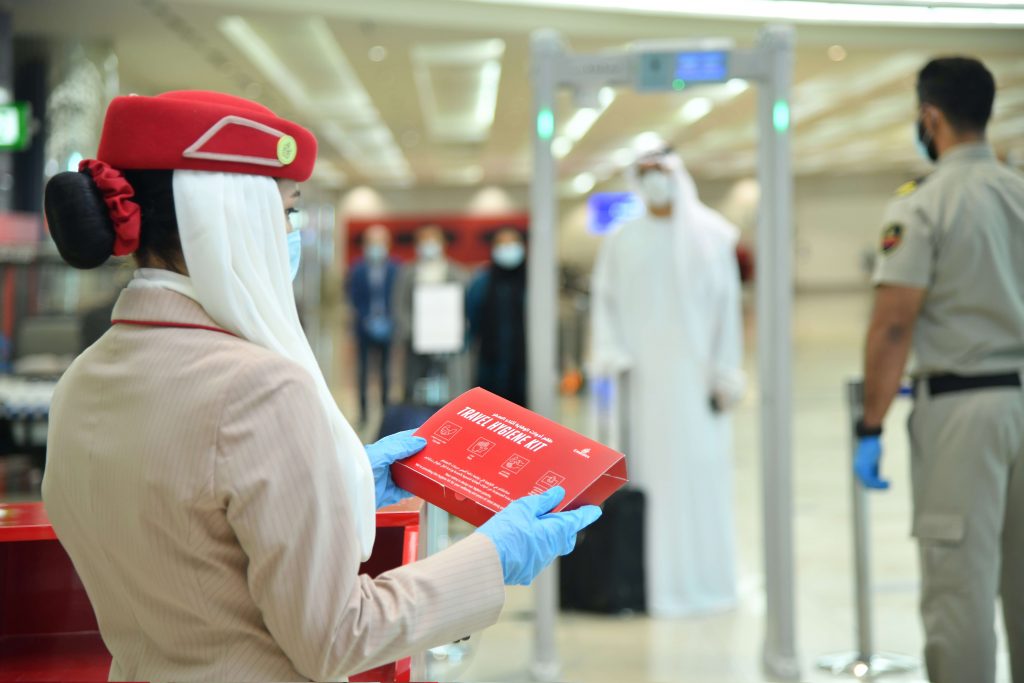
Whether you like it or not, face masks are very quickly becoming a mandatory and essential accessory for the few airline passengers that are still flying at the moment. Refuse to wear a face mask, or in many cases fail to turn up at the airport with your own face mask, and you run the very real risk of being denied boarding. And don’t be fooled into thinking this is a fad that is going to disappear anytime soon.
The International Air Transport Association (IATA) has already backed the requirement for both crew and passengers to wear face masks for the foreseeable future because it thinks it will help regain confidence in air travel as borders slowly reopen and more people consider whether it’s safe to fly again. Masks are here to stay even if the implementation of these rules can be patchy to say the least.

Dutch flag carrier KLM, for example, requires passengers to bring their own mask but doesn’t recognise bandanas or scarves as an acceptable face covering. Meanwhile, major airlines in the United States have been criticised for introducing mandatory face mask policies but then telling flight attendants that they have no power to enforce those rules if a passenger refuses to wear a mask.
The UN’s civil aviation organisation is at least now debating the issue of face masks and hopefully, we’ll have some clearer guidance soon that can be implemented uniformly across the airline industry. In the meantime, however, airlines have been largely left to their own devices and some are introducing more generous policies than others.
The hygiene arms race has well and truly started and Delta Air Lines yesterday announced plans to start handing out complimentary hygiene care kits that contain a disposable surgical face mask and two mini packs of hand sanitizer – the airline amenity kit for the COVID-19 era.
“Our survey data showed a clear desire for these kits and we have a bias toward action when we see new trends emerge,” explained Delta’s chief customer experience officer, Bill Lentsch. “As more people begin to consider traveling in the months ahead, ensuring their safety at all steps of their journey remains our top priority,” he continued.
Sadly, Delta will initially only hand out the hygiene kits on request and is still asking as many passengers as possible to bring along their own mask. Elsewhere, United is also handing out an all-in-one snack bag in collaboration with Clorox that contains a wrapped sanitizer wipe to every customer.
Again, though, limited numbers of face masks will only be available on request. American Airlines has implemented a similar policy.
The Dubai-based airline Emirates, however, has created what is probably the most comprehensive in-flight hygiene kit so far. These kits contain several masks, as well as gloves, antibacterial wipes and hand sanitiser. Passengers will be handed the kits upon check-in so they can make use of the contents straightaway, while transfer passengers will be handed a second kit before they board their second flight.
What’s key here is that Emirates has recognised that except for shorter flights of less than four hours, passengers will need to change their face mask. Most surgical face masks need to be changed at least every four hours so airlines are being encouraged to have a plentiful supply of spares on hand.
What will be interesting to watch is how this progresses over the coming months. As high-spending passengers start to return, we’ll we see airlines introduce premium multi-use or N95 face masks for Business and First Class passengers? Whatever the case, it’s pretty clear that passengers will very soon expect airlines to supply Personal Protective Equipment (PPE) just like they once expected cheap disposable toothbrushes.
Mateusz Maszczynski honed his skills as an international flight attendant at the most prominent airline in the Middle East and has been flying ever since... most recently for a well known European airline. Matt is passionate about the aviation industry and has become an expert in passenger experience and human-centric stories. Always keeping an ear close to the ground, Matt's industry insights, analysis and news coverage is frequently relied upon by some of the biggest names in journalism.







